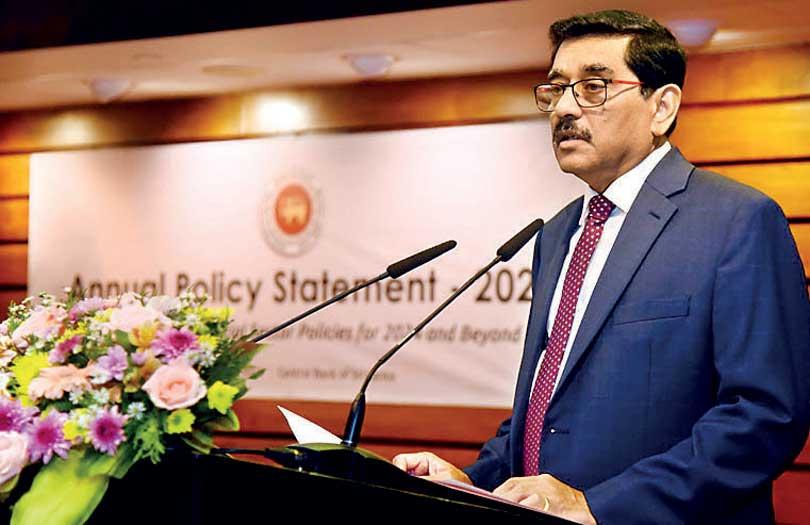Reply To:
Name - Reply Comment

Dr. Nandalal Weerasinghe
PIC BY PRADEEP PATHIRANA
The Central Bank will review the remaining restrictions on the outflows from the capital account and gradually start lifting them by taking into account the domestic market foreign exchange liquidity condition improvement.
“With the observed improvements in the liquidity position of the domestic foreign exchange market, the Central Bank would review the existing restrictions on certain capital foreign exchange outflows on a priority basis, with a view to gradually unwinding these restrictions,” Central Bank Governor Dr. Nandalal Weerasinghe said while delivering Annual Policy Statement 2024, this week.
The Exports Proceeds Monitoring System implemented in 2022 would be further optimised, ensuring improved efficiency and effectiveness of the monitoring mechanisms of export proceeds repatriation.
There were concerns that the exporters weren’t repatriating their earnings and instead parking them at the foreign countries, expecting the rupee to further fall in value, exacerbating the foreign currency shortage in the country.
At the height of the foreign exchange crisis in 2022, the Central Bank imposed broad-based limitations on outflows of foreign currency while the government suspended the restrictions on imports of thousands of items, unless they were essential or urgent.
As the foreign exchange liquidity started gradually improving in the banking system, restrictions were lifted, mostly in the imports, except for a remaining few, including the personal vehicles. The latter will see the restrictions lifted in the coming months.
Most of the outflows from the capital account restrictions stayed, due to the severity and outsize nature, which could cause pressure on the balance of payment, given the still fragile nature of the external sector last year.
However, as the Central Bank rebuilt its gross official reserves to US $ 4.4 billion by end-2023, with the largest ever annual net purchases of foreign currency from the market in a single year, it is revisiting the controls imposed at the thick of the crisis.
Furthermore, the Central Bank said it expects the required amendments to be finalised to the current Foreign Exchange Act No. 12 of 2017 and brought in place during early this year.
The changes to the Foreign Exchange Act is expected to provide the necessary framework to regulate the functioning of the formal foreign exchange market more efficiently, while empowering the regulatory authorities to take prompt actions against violations of and/or non-compliance with foreign exchange transactions.